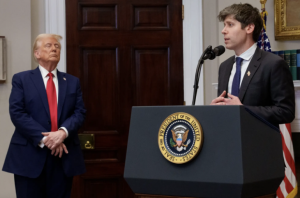A solution to fix democracy
May 15, 2017
History Professor, Kim Quinney presented “Speaking of Democracy,” an open discussion with students held on April 20 from 12 p.m. to 1 p.m. at Markstein Hall.
Quinney discussed the topics of private gains in public office and corruption. In her presentation, she gave examples of how people can become biased by what they read. She explained that social media can confirm our biases. We follow what we want or like to hear.
“We have to start by acknowledging our own biases and the ways in which we might be biased without even realizing it,” said Quinney.
She suggest to focus on data, have healthy conversations and being honest about our own biases.
Civic Learning Coordinator, Catalina Langen participated in the discussion. She suggested that local officials can be involved with private gains in public fundings or corruption.
Quinney showed videos of how corruption in the United States is viewed and how it can be solved. She showed a video of Louis Farrakhan, a religious leader and activist, arguing how America is the most corrupt country in the world.
She explained how corruption is implemented in our legal system. She showed a video on how the Anti-Corruption Act can solve corruption without involving Congress by using the ballot initiative process. Citizens can pass laws themselves without Congress by gathering signatures and adding the act into a public vote.
To read more about the Anti-Corruption Act visit represent.us/start or visit the anticorruptionact.org.






